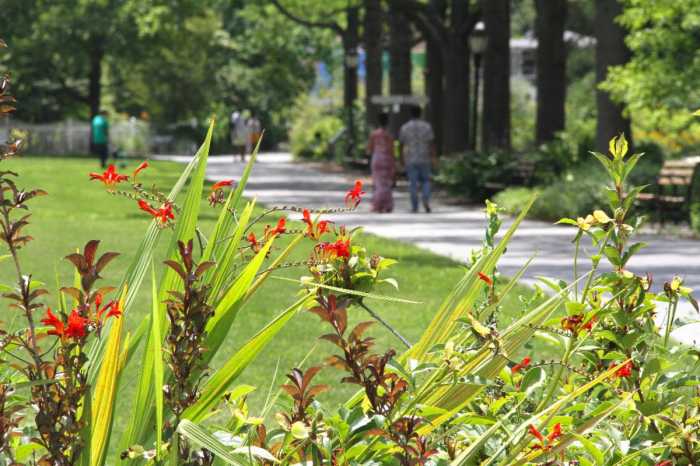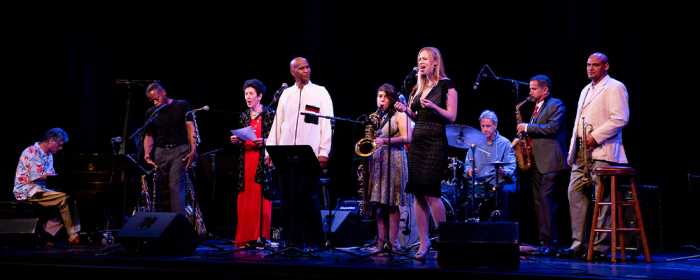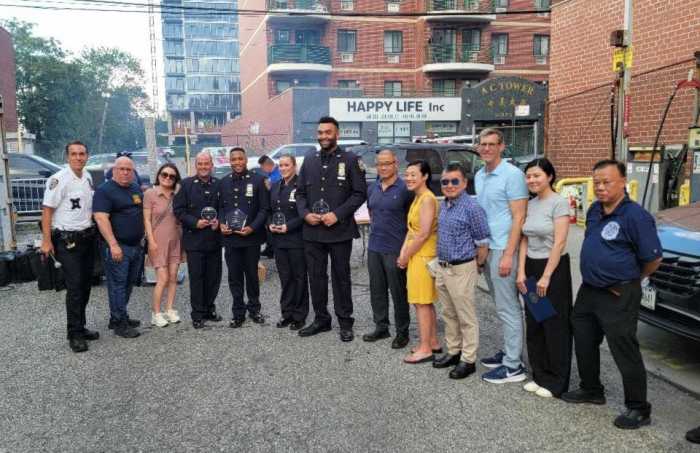By The Greater Astoria Historical Society
In a 1964 speech at the Singer Bowl at the New York World’s Fair site, President Lyndon Johnson called on all Americans to “open wide the door of equality” for 20 million of their fellow black citizens who had been “on the outside looking in” for 200 years.
Regarding the civil rights bill before Congress, he said, “It may take all summer — it may take sessions ’round the clock, but I promise you here and now that we are going to pass that bill.”
Johnson also appealed for aid in his “war on poverty.”
l
At the Neponsit Home for the Aged in Rockaway Beach, 102-year-old Edward Everett Cauthorne prepared to be the guide when he and 29 of his fellow residents toured the World’s Fair.
This would be his fourth fair. He had attended the New Orleans Fair in 1884, the Paris Exposition on 1900 and the 1939-40 New York World’s Fair. He missed the St. Louis Fair in 1904 because he was out of the country, but saw the construction of the 1933 Chicago Fair.
As a teenager, Cauthorne had been a cattle-puncher in Texas and the Indian Territories. Later, in Jackson, Mo., he was court clerk at the trial of Frank James, brother of the notorious Jesse James.
In recent years, he was a real estate dealer.
l
All was not well at the fair.
Less than a month after its opening, unexpectedly high expenses were leading some exhibiting nations to re-examine their fair plans. Some talked about curtailing exhibits or closing outright. Others were charging fees for programs that were supposed to be free or asking their home governments for additional funds.
Fair executive Thomas J. Deegan Jr. also admitted that attendance had not reached the predicted 250,000 a day, but large crowds were expected during the summer months.
l
“People count for nothing.” “This is no good.” “Where will we live — on the street?” “We don’t want to be moved.” “Move? Never.”
These were among the milder reactions of Queens homeowners to the Federal Aviation Agency proposal to move people living near airports to “solve” the jet noise problem.
l
Malcolm X, of Corona, the former Black Muslim leader, inflamed African passions against the United States by making a bitterly anti-American speech to an applauding university student group in Idaban, Nigeria.
He said racial discrimination in the United States was worse than apartheid in South Africa and that 32 million blacks in the United States were being treated as less than human beings.
Malcolm X had formed a new black nationalist group more militant than the main Black Muslim organization.
l
Three boys were the victims of savage beatings on Rockaway Beach. A Star reporter walked the beach looking for clues to the attacks.
The first clue was beer cans. In just one block, between Beach 107th and 108th streets, there were 1,400 cans, by actual count.
The second was gangs. The reporter interviewed a 22-year-old who, while no longer a gang member, commented that the trouble-making gangs were kids as young as 14 and not older than 18 who “were trying to impress girls and feel big.
“They make a crack at a girl who isn’t interested, the girl complains to a boy she knows and then there’s a battle. The next week, the loser comes back with more friends to get even, and then there’s another brawl, with maybe someone scarred for life by a beer can opener.”
l
The Beatles’ appearance at Forest Hills Stadium for shows Aug. 29-30 was sold out three months in advance, with 28,000 tickets sold and orders still pouring in.
The group was to get $40,000 plus a percentage of the gate, five free hotel suites and two limousines for their use.
They also demanded, and would get, 100 private cops at their shows to protect them from adoring fans.
For more information, call 718-278-0700 or astorialic.org.


































